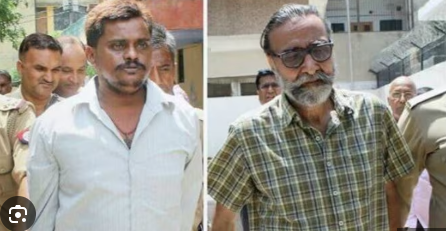NEW DELHI, Oct 16: In a scathing criticism of the Central Bureau of Investigation and the Noida Police, the Allahabad High Court on Monday expressed disappointment over the investigation in the serial killings of children at Nithari in Delhi’s backyard of Noida which it said was “botched and nothing short of betrayal of public trust.”
The presentation of the 17-year old case in court also left much to be desired, the judges indicated, saying the prosecution has failed to prove guilt beyond reasonable doubt and left key angles, including the possibility of an organized organ trade, unexplored. The court ordered acquittal of both the accused Maninder Singh Pandher and Surendra Koli who were awarded death sentences by the trial court.
Expressing “disappointment” with the Nithari killings probe, the court noted the investigation was “botched up” and “basic norms of collecting evidence” were “brazenly violated.” The failure of the prosecution was nothing short of a “betrayal of public trust” by responsible agencies, the High Court said.
Pandher was acquitted in two cases in which he was facing the death penalty while Koli was let off in 12 cases in which he was awarded capital punishment. “Upon evaluation of the evidence led in this case, on the touchstone of fair trial guaranteed to an accused under Article 21 of the Constitution of India, we hold that prosecution has failed to prove the guilt of accused SK and Pandher beyond reasonable doubt, on the settled parameters of a case based on circumstantial evidence,” the bench of Justices Syed Aftab Husain Rizvi and Ashwani Kumar Mishra said. The CBI said it would approach the Supreme Court against the High Court’s judgement.
The horrific case that shocked the nation 17 years ago, brought to light the murder and dismemberment of 19 children and at least one woman. Koli was awarded five death sentences in five separate cases, but had a narrow shave twice. In 2014, the Supreme Court had upheld the death penalty after putting the execution on hold for a month. The matter had also reached then President Pranab Mukherjee who had rejected Koli’s mercy petition.
But the next year, the Allahabad High Court commuted the death penalty to life imprisonment, citing the “inordinate” delay in deciding his mercy plea. Pandher is currently in a Noida jail, and Koli is in a jail in Ghaziabad.
The sensational killings which came to light in December 2006 with the discovery of the skeletal remains of eight children from a drain in Nithari in Noida were initially probed by the Uttar Pradesh Police. The matter was later handed over to the CBI. The High Court expressed “disappointment at the manner in which Nithari killings, particularly the disappearance of victim A, have been investigated.”
“The prosecution case is based upon the confession of accused SK, made to U.P. Police on December 29, 2006,” the bench said. It said the procedure required to be followed for recording the accused’s disclosure leading to recovery of biological remains i.e. skulls, bones and skeleton etc. has been given a complete go by.
“The casual and perfunctory manner in which important aspects of arrest, recovery and confession have been dealt with are most disheartening, to say the least,” it said. The court took note of the fact that the prosecution kept changing its position — from attributing the recoveries jointly on Pandher and Koli initially to “the guilt was fastened exclusively” on Koli at later stages.
The High Court noted that all the recoveries of human remains were from a drainage situated beyond the boundary of House no. D-5 (Pandher’s) and D-6 (belonging to a doctor accused of organ trading) and no recovery was made from inside of Pandher’s house.
“None of the recovery of skull, bones/skeleton is made from within the House No. D-5. The only recovery from within the House No. D-5, Sector 31, Noida is that of two knives and an axe, which admittedly are not used for committing the offence of rape, murder etc. but are alleged to have been used for cutting the body parts after the victims were strangulated to death,” the bench said.
It said the failure of the prosecution to probe the possible involvement of organ trade, despite specific recommendations made by the High Level Committee constituted by the Ministry of Women and Child Development, Government of India, in the Nithari killings is nothing short of a “betrayal of public trust” by responsible agencies.
The High Court said the investigation opted for “the easy course of implicating a poor servant” of the house by “demonizing him” without taking due care of probing more serious aspects of possible involvement of organised activity of organ trading.
“Inferences of many kind, including collusion etc. are probable on account of such serious lapses occasioned during investigation. However, we do not intend to express any definite opinion on these aspects and leave such issues to be examined at the appropriate level,” it said.
The bench said the loss of life of young children and women is a matter of serious concern particularly when their lives were brought to an end in a most inhuman manner but that, in itself, would not justify denial of a fair trial to the accused nor would it justify their punishment even in the absence of evidence to implicate them.
(Manas Dasgupta)

